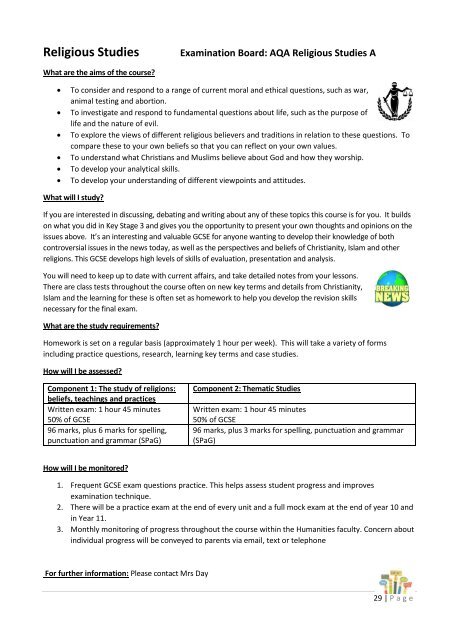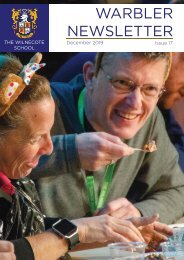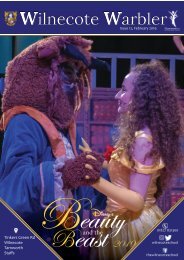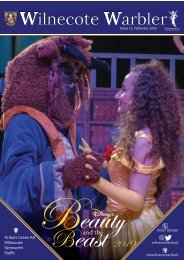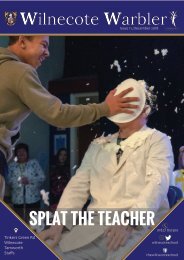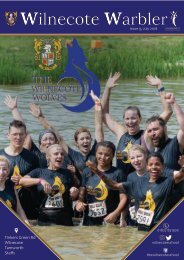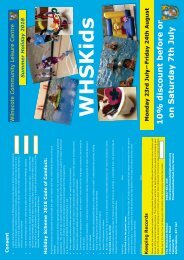Y8 Options Booklet
- No tags were found...
Create successful ePaper yourself
Turn your PDF publications into a flip-book with our unique Google optimized e-Paper software.
Religious Studies<br />
Examination Board: AQA Religious Studies A<br />
What are the aims of the course?<br />
<br />
<br />
<br />
<br />
<br />
<br />
To consider and respond to a range of current moral and ethical questions, such as war,<br />
animal testing and abortion.<br />
To investigate and respond to fundamental questions about life, such as the purpose of<br />
life and the nature of evil.<br />
To explore the views of different religious believers and traditions in relation to these questions. To<br />
compare these to your own beliefs so that you can reflect on your own values.<br />
To understand what Christians and Muslims believe about God and how they worship.<br />
To develop your analytical skills.<br />
To develop your understanding of different viewpoints and attitudes.<br />
What will I study?<br />
If you are interested in discussing, debating and writing about any of these topics this course is for you. It builds<br />
on what you did in Key Stage 3 and gives you the opportunity to present your own thoughts and opinions on the<br />
issues above. It’s an interesting and valuable GCSE for anyone wanting to develop their knowledge of both<br />
controversial issues in the news today, as well as the perspectives and beliefs of Christianity, Islam and other<br />
religions. This GCSE develops high levels of skills of evaluation, presentation and analysis.<br />
You will need to keep up to date with current affairs, and take detailed notes from your lessons.<br />
There are class tests throughout the course often on new key terms and details from Christianity,<br />
Islam and the learning for these is often set as homework to help you develop the revision skills<br />
necessary for the final exam.<br />
What are the study requirements?<br />
Homework is set on a regular basis (approximately 1 hour per week). This will take a variety of forms<br />
including practice questions, research, learning key terms and case studies.<br />
How will I be assessed?<br />
Component 1: The study of religions:<br />
beliefs, teachings and practices<br />
Written exam: 1 hour 45 minutes<br />
50% of GCSE<br />
96 marks, plus 6 marks for spelling,<br />
punctuation and grammar (SPaG)<br />
Component 2: Thematic Studies<br />
Written exam: 1 hour 45 minutes<br />
50% of GCSE<br />
96 marks, plus 3 marks for spelling, punctuation and grammar<br />
(SPaG)<br />
How will I be monitored?<br />
1. Frequent GCSE exam questions practice. This helps assess student progress and improves<br />
examination technique.<br />
2. There will be a practice exam at the end of every unit and a full mock exam at the end of year 10 and<br />
in Year 11.<br />
3. Monthly monitoring of progress throughout the course within the Humanities faculty. Concern about<br />
individual progress will be conveyed to parents via email, text or telephone<br />
For further information: Please contact Mrs Day<br />
29 | P a g e


